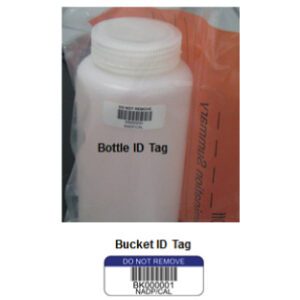Infertility at a Glance
A recent study by Medi-Resource Inc. showed that 11.5% to 15.7% of Canadian couples experience infertility. If you do the math, that’s nearly one in six couples. It turns out that one of the top fertility treatment centers in Canada happens to be a longtime customer of ours. In fact, their organization has the largest in-house medical team of ANY fertility clinic in Canada.
Fertility clinics help individuals and couples through the medical and psychological challenges of growing their families. Our customer has expertise not only in fertility medicine, but also in several unique sub-specialties. Sub-specialties range from recurrent pregnancy loss to pregnancy in women with autoimmune diseases. Their services also branch out to include holistic therapies and emotional counseling.
Sampling Label Options
The professionals from this clinic first got in touch with us back in June of 2013. They needed labels for laboratory research – and they needed them in a hurry! Their goal was to automate their labeling process and set up a system to print their own labels at their facility. These labels needed to reliably adhere to test-tubes/vials containing blood samples from patients.
We started by providing them with a range of cryogenic label samples to test. Especially when choosing labels for laboratory research, we always encourage customers to test label samples before purchasing. This ensures that they’ll find one that best suits their operation. The temperature of the test tubes when applying the label, the level of chemical resistance, and preference between white and clear print block options are all factors laboratories have to take into consideration.
A Reliable Solution

(Source: Body and Health Canada, “Infertility is More Common Than You Think”)






